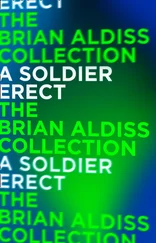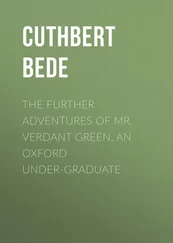They were good-looking, open people, frank and unreserved. They welcomed me with open arms, as if they'd known me for ever. Right away they made me a bed in a corner of the big garage, more or less curtained off and close to the shower. They were my first real family for seventeen years. This team of young people liked, cherished and respected me; and it made me all the happier because although I was a few years older I had just as much zest for life, just as much joy in living without rules and without limits.
I asked no questions-I didn't really have to-but I soon saw that not one of them was a genuine mechanic. They had a vague, a very vague notion of what a motor was: but even less than a notion as far as the motors of American cars were concerned, and American cars were the main or indeed the only customers. One of them was a lathe operator, and that explained the presence of a lathe in the garage-they said it was for correcting pistons. Pretty soon I found that what the machine was really used for was changing gas bottles so they would take a detonator and a Bickford fuse.
For the swarm of newly arrived Frenchmen, the Franco-Venezuelan garage repaired cars, more or less; but for the Venezuelan financier it prepared bombs for a coup d'etat. I didn't altogether care for this.
"Hell," I said. "Who's it in support of and who's it against? Tell me about it." It was evening; we were sitting there under the lamp and I was questioning the three Frenchmen-their wives and the kid had gone to bed.
"That's none of our business. We just fix the tubes Armando gives us. And that's fine by us, mac."
"Fine for you, maybe. But I have to know."
"Why? You earn a fat living and you have fun, don't you?"
"Sure. As far as fun goes, we have fun. But I'm not like you. They've given me asylum in this country: they trust me and they let me walk about as free as air."
Hearing me talk like this in my position struck them as very odd. Because they knew what I had in the back of my mind; they knew all about my obsession-I'd told them. But one thing I hadn't told them was about the pawnshop job. So they said to me, "If this business comes off, you can make the money you need to carry out what you have in mind. And of course we don't intend to spend the rest of our lives in this garage. Certainly we have fun, but it brings in nothing like the solid cash we'd dreamed of when we came to South America."
"And what about your wives and the kid?"
"The women know all about it. A month before D-Day they leave for Bogota."
"They know all about it, then. Just as I thought; so they aren't too surprised at some of the things that go on."
That same evening I saw Deloifre and Armando, and I had a long talk with them. Armando said to me, "In this country of ours, it's Betancourt and Gallegos who run everything, under the cover of the phony AD (Acción Democrática). The power was put into their hands by simpleminded soldiers who no longer really know why they overthrew Medina -he was a soldier, too, and he was more liberal and far more humane than the civilians. I see the former Medina officials being persecuted, and there's nothing I can say; and I try to understand how it comes about that men who carried out a revolution with slogans like 'Social justice and respect for all without the least exception' can become worse than their predecessors once they're in power. That's why I want to help bring Medina back."
"Fine, Armando. I quite see that what you want above all is to stop the party now in power from going on with their persecution. And as for you, Deloifre, you've got just one God, and that's Medina, your protector and your friend. But listen to me, now: the people who let me, Papillon, out of El Dorado were this very party now in power. Straight after the revolution, the minute the new chief arrived, he stopped the savage reign of terror in the settlement, stopped it dead. He's still there, I believe-Don Julio Ramos, a lawyer and a distinguished writer, the guy who let me out. And you want me to join in a coup against these people? No: let me go. You know you can count on my keeping my mouth shut."
Armando knew the tough spot I was in, and like a real gentleman he said to me, "Enrique, you don't make the bombs; you don't work at the lathe. All you do is look after the cars and pass the tools when the boss asks for them. So stay a little longer. I ask it as a favor; and if we make a move I promise you'll know a month ahead for sure."
So I stayed there with those three young guys; they are still alive and they would be easily recognizable, so I will put the initials P.I., B.L. and J.G. instead of their names. We made up a splendid team, and we were always together, living it up at such a pitch that the French of Caracas called us the three musketeers-as everybody knows, there were four of them. Those few months were the finest, the happiest and the liveliest I ever spent in Caracas.
Life was one long laugh. On Saturdays we kept some elegant car belonging to a customer for our own use, saying it wasn't ready yet, and we drove down to one of the gorgeous beaches lined with flowers and coconut palms to swim and have fun all day long. Sometimes, of course, we would meet the owner, far from pleased at seeing the car he thought was in the garage filled with all these people. Then gently, gently, we would explain that we were doing this for his sake-that we could not bear the idea of giving him back a car not in perfect condition, and so it had to be tried out. It always worked, and no doubt the ravishing smiles of the girls helped a great deal.
On the other hand, we did get into some very awkward situations. The Swiss ambassador's gas tank leaked; he brought the car in for us to solder the joint. I carefully emptied the tank with a rubber pipe, sucking out the very last drop. But apparently that wasn't enough, because as soon as the flame of the blowpipe touched it, the damn tank blew up, setting fire to the car and roasting it to a frazzle. While the other guy and I groped about, covered with black oil and smoke and just beginning to grasp that we had escaped from death, I heard B.L.'s calm voice saying, "Don't you think we ought to tell our partners about this little mishap?"
He phoned the brothers, and the half-wit Clemente answered. "Clemente, can you give me the number of the garage's insurance?"
"…"
"What for? Oh yes, I was forgetting. Because the Swiss ambassador's car caught fire. It's just a heap of cinders now."
I don't have to tell you that five minutes later Clemente appeared at a brisk run, waving his arms about and hopping mad because in fact the garage was not covered in any way at all. It took three stiff whiskies and all the charm of Simone's amply displayed legs to quiet him down. Armando only turned up the following day; he was perfectly calm, and this was his charming way of taking it-"Things happen only to people who work. Anyhow, don't let's talk about it anymore; I've fixed everything with the ambassador."
The ambassador got another car, but for some reason we lost his business.
From time to time, while we were living this zestful life, I thought about my little treasure lying there hidden at the foot of a tree in a republic well known for its frozen meat. And I put money aside for the fare there and back when the time came to go and fetch it. The knowledge that I had almost enough to satisfy my revenge had completely transformed me. Because I no longer worried about making money, I could plunge wholeheartedly into our musketeering life-plunge into it so deep that one Sunday afternoon at three o'clock there we were, all of us, bathing in a fountain in one of the Caracas squares, with nothing on but our drawers. This time, at least, Clemente rose to the occasion and had his brother's partners released from the police station where they had been shut up for indecent exposure. By now a good many months had gone by, and at last it seemed to me safe to go and pick up my treasure.
Читать дальше
Конец ознакомительного отрывка
Купить книгу











